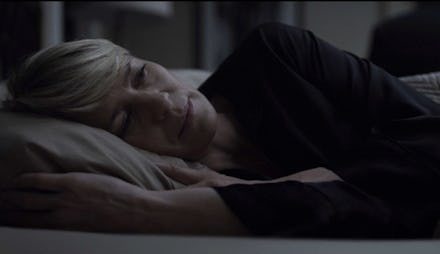TV Rape Plots Are Controversial, But We Need to Keep Writing Them

If you've been reading about television, you've likely noticed the outcry over the increasing prevalence of rape plots. In House of Cards, Downton Abbey and Scandal alone, the rape plot has become a prominent part of modern TV. But that's a good thing.
Seen by some concerned critics as lazy plot devices, and by others as part and parcel of the myths that circulate around rape, these plots are actually crucial to exposing the very real problem of sexual assault and pushing television to be more mature than ever. The contemporary crop of television shows aren't normalizing or writing off rape; they're offering a different interpretation of women's experience of trauma, and particularly of sexual assault. And it's a version we need to hear.
Image Credit: PBS
In some ways, television makes an unlikely candidate for the critical consideration of such a controversial theme. After all, writers bound by the dual constraints of engaging character development and the need to maintain audience share could be accused of using rape as a perversely effective means of driving a story forward, as they have been.
Narratives of sexual assault extended over a season or series have the potential to show rape for what it is: the symptom and consequence of a set of social circumstances.
Yet television is now a real rival to film in the art of representing character. The women of Downton Abbey, House of Cards and Scandal are believable, though often disagreeable, human beings who feel more real than their TV predecessors. Interpreting the characters' experience of sexual assault through their own flawed complexity explodes the typical homogeneous understanding of rape survivors — as either shattered wrecks or calculating schemers — and the fallacy of any kind of ideal conditions for assault. Acknowledging the diversity of women's experiences is essential not only to respecting the experience of those who've been through sexual assault, but also to make better female characters and ultimately, better and truer television. This scene in Scandal is a perfect example of how TV isn't just concerned with sensationalizing rape: It's offering a real interpretation of what it means to live with sexual assault.
Would it be better if rape didn't figure into storylines of characters both male and female alike? Of course it would. But the cultural caché of television makes it both reflective of the pervasive and volatile myths that circulate in society, and ideally situated to challenge these perceptions. If we fail to engage with those myths through strong female characters on our most popular medium, it only indicates to survivors of sexual assault that their experiences are — and should be — unspeakable. It also helps us think of survivors as an "other" — rather than laying bare the quirks and frailties that make them human.
TV can be cathartic for the culture, then. The episodic structure of TV allows us to identify with characters we feel we know in their entirety. In the context of Claire's revelations in House of Cards, for instance, sexual assault narratives are more than cheap attempts to prod along the development of female characters. And they aren't simply a means of rendering sympathetic characters who are otherwise reprehensible. Rather, they challenge ideas of "deserving" and "undeserving" victims that muddy the perception of the individuals' experiences of sexual assault. These extended storylines make it possible to examine not only the assault and its immediate aftermath, but also the effect on relationships between characters as they process the fallout. Narratives of sexual assault extended over a season or series have the potential to show rape for what it is: the symptom and consequence of a set of social circumstances.
Image Credit: Netflix
These female characters we see on TV are no longer necessarily cartoonish stereotypes of feminine victimhood. They're more than passive casualties, and their experience of rape neither redeems nor condemns them. In their complexity, they refuse to be mythologized or othered. And in doing so, they help to create a new model for female characters: one that is messily, uncompromisingly human.